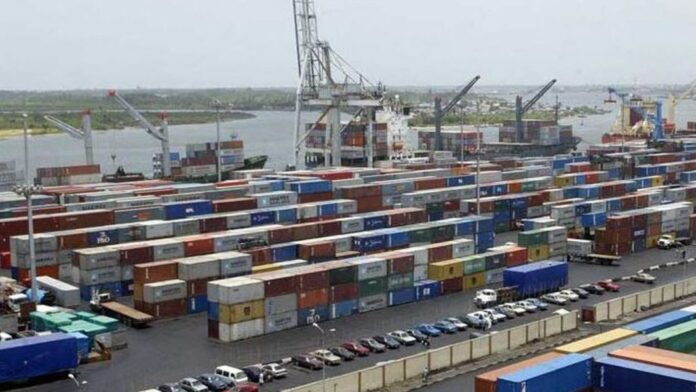The Calabar Port Manager, Mr Festus Olumati, on Saturday said that the vessel traffic at the port complex between the months of January and May was 72.
Olumati gave the figure during the visit of the Managing Director, Nigerian Ports Authority (NPA) Mr Mohammed Bello-Koko, to the Calabar Port.
The port manager said that between January and May 2022, vessel traffic into Calabar Port recorded high returns with huge corresponding increase in the revenue of the authority.
“Within the period under review, the Gross Register Tonnage (GRT) is 1,611,441 and a cargo throughput of 990,154.
“Cargo turn around time is four days per ship, with 16 container 24-foot Equivalent Unit (TEUs) and 15 per cent berth occupancy.
“From January to May 2022, our revenue growth earnings increased as follows: revenue generated in dollars, $6.6 million, while the actual revenue in dollars collected was $5.8 million.
“The revenue generated in naira is N646 million and the revenue collected in naira is N309.2 million,” he said.
Olumati stated that the Calabar Port Complex had been reconnected to the national grid, as the management had resolved the frosty relationship between the NPA, Calabar Port Complex and the Calabar Electricity Distribution Company (CEDC).
He said that despite huge improvements, the Calabar Port was still faced with some growing challenges impeding its attainment of her full capacity as one of the fastest-growing ports in Nigeria.
He listed some of the challenges to include: Low depth of the Calabar Port water channel, which required full dredging, collapsed berth at the shoreline jetty, abandonment of Delta Queen Rig since 2012 and others.
Responding, Bello-Koko said that he would ensure that the berth occupancy, which stood at 15 per cent, be improved.
With regard to the issue of light and encroachment on the port land, he urged the port manager to ensure that whatever had been collected back be put to proper use, to avoid encroachment.
He congratulated the staff for the berthing of a vessel at the port, noting that it was a big feat, and also appreciated them for attaining the ISO certification.
“I hope we get to see that we don’t celebrate this after another year or month. Management will work with you to ensure that it becomes a new normal in the port.
“Dear colleagues, it gives me pleasure to physically engage with you today.
“As you must have noticed from my several correspondence through email, we are committed to openness of communication between management and staff.
“Your opinion and idea matter to us and as such, we will appreciate constructive feedback from you through appropriate channels.
“The task of ensuring that our strategic intent to be the maritime hub for sustainable port services in Africa goes beyond mere rhetorics, it’s a collective one.
“This is why I expect that all hands should be on deck,” he said.
Bello-Koko stated that all hands being on deck would ensure not only to meet, but to also surpass stakeholders’ expectations and add greater value to the national economy.
The News Agency of Nigeria (NAN) reports that the Calabar Port Complex stands on the threshold of about 45 nautical miles, which is approximately 83 kilometers, comprising the Old Port, the New Port and the Dockyard.
Currently, Calabar Port is operated by three world class Terminal Operators namely: ECM Terminal Ltd., INTELS Nigeria Ltd. and Shoreline Logistics Nigeria Ltd.




